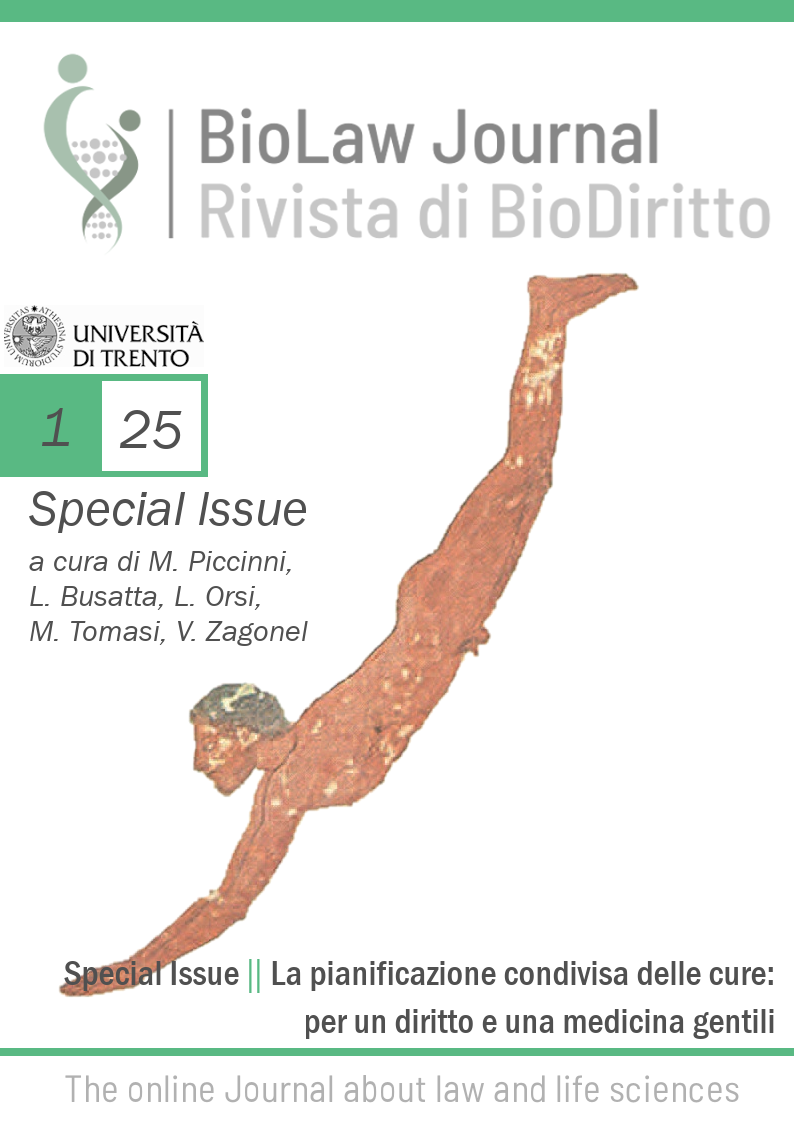Shared care planning in elderly patients with dementia
DOI:
https://doi.org/10.15168/2284-4503-3419Keywords:
Advance care planning, shared care planning, geriatrics, dementia, autonomy, incapacityAbstract
This article examines the challenges and potential benefits of implementing shared care planning (i.e., “Pianificazione Condivisa delle Cure” under Italian law) for elderly patients with dementia. The unique characteristics of this patient group give rise to critical issues within the clinical relationship, which are analyzed from both ethical and legal perspectives. The discussion highlights the importance of promoting patient autonomy, even when it is partial or diminished, and advocates for the application of PCC as a means to achieve this goal. Particular emphasis is placed on the potential appointment of a “fiduciario” (i.e., a trusted representative). In the final section, the article addresses practical obstacles to drafting a PCC and introduces two supportive tools currently employed by the Geriatrics Unit at Bassano del Grappa Hospital: an informational document and an illustrative model designed to assist clinicians in this process.
Downloads
Published
How to Cite
Issue
Section
License

This work is licensed under a Creative Commons Attribution-NonCommercial-NoDerivatives 4.0 International License.





